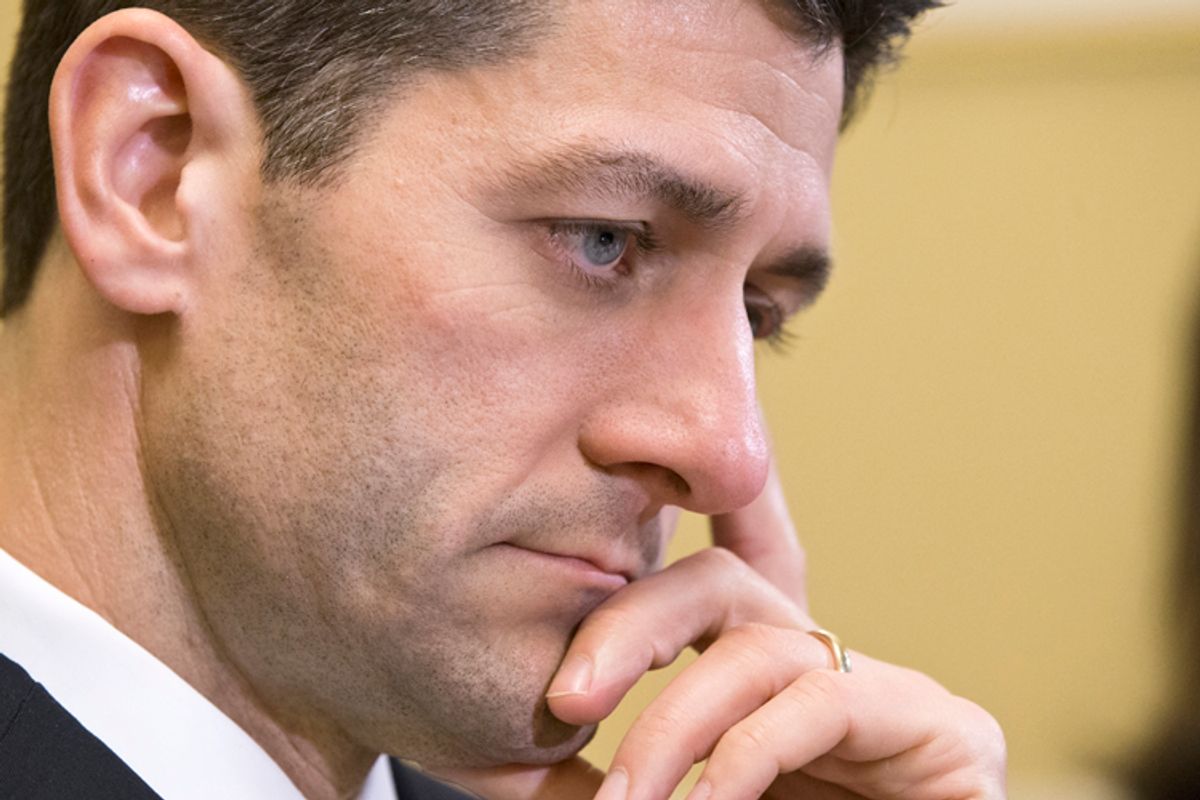New polling out from NBC and the Wall Street Journal shows a huge shift in attitudes towards poverty and the poor over the last 20 years. According to the survey, 46 percent Americans believe that poverty is caused by circumstances beyond people’s control, versus 44 percent who think it’s caused by impoverished people not doing enough to improve their station in life. The last time the survey asked that question, in 1995, a full 60 percent of Americans felt that the poor weren’t doing enough to lift themselves out of poverty, compared to just 30 percent who blamed extraneous factors. Hard times, it would seem, have made us more sympathetic to the plight of the poor. There’s nothing like a massive economic downturn to foster a little empathy.
And that makes sense. When the economy so rapidly and viciously turns on so many people, it’s hard to maintain the sense of idealism that leads one to believe that hard work and ambition are all that’s required to secure a comfortable, reasonably prosperous existence.
The poll shows complex public attitudes towards the government's role in alleviating poverty -- sympathy for the poor does not translate into increased support for benefits programs, for example. But it nonetheless complicates Republican efforts to impose austerity measures and cut back dramatically on government assistance to the poor. It’s bad policy, but gutting welfare programs makes political sense when the country largely agrees with you that the poor are poor owing to their own inertia. Those attitudes are changing, but the GOP policy prescriptions are not.
Consider the expiration of benefits for the long-term unemployed. The Republicans blocked an extension of those benefits six months ago, arguing that they fostered complacency among the jobless, who would rather collect a government check than find a job. “I'm not against having unemployment insurance,” Sen. Rand Paul said on ABC News in January, “I do think, though, that the longer you have it, that it does provide some disincentive to work and that there are many studies that indicate this.”
Since those benefits were cut off, there’s been no discernible increase in the rate at which the long-term unemployed are finding work. The Senate tried to get them reinstated, but John Boehner let the bill die.
The shift in public sentiment also creates problems for the Republicans trying to reposition themselves as champions of the poor. Rep. Paul Ryan, Sen. Marco Rubio, Sen. Rob Portman, and other GOP legislators have been giving speeches and going on listening tours, all aimed at projecting an image of concern for America’s less well-off. But implicit in their message of poverty amelioration is the view that Americans are abandoning – that the poor aren’t doing enough to better their own situation. Ryan and his colleagues try to work around this by affixing blame on the government programs themselves, claiming that the programs designed to cure poverty have themselves become a trap. Ryan’s poverty report from earlier this year made that case: “Some programs provide critical aid to families in need. Others discourage families from getting ahead.”
But actual policy outcomes like the expiration of unemployment benefits bely that messaging, as do the previous stated positions of people like Paul Ryan, who said in 2012: “We don't want to turn the safety net into a hammock that lulls able-bodied people to lives of dependency and complacency, that drains them of their will and their incentive to make the most of their lives.”
Of course, it’s still not clear what Ryan proposes to actually do about poverty. Despite months of listening tours and glowing media profiles and longstanding promises to tackle the issue, he still hasn’t released any policy proposals.

Shares